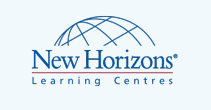Organisations, too, are seeing value in using Agile practices to deliver projects more quickly, with less wasted labour and costs due to misunderstood or ill-defined requirements. This workshop will help participants learn various frameworks for delivering and managing AGILE projects.

Many project professionals are seeing a demand for Agile practices in a variety of industries and organisations, and are eager to learn and apply them.
Organisations, too, are seeing value in using Agile practices to deliver projects more quickly, with less wasted labour and costs due to misunderstood or ill-defined requirements. This workshop will help participants learn various frameworks for delivering and managing AGILE projects.
Audience
To understand they key principles of AGILE methods and to learn AGILE best practices
Teach you the common language of AGILE
To understand how to leverage Agile principles and use them in traditional projects
To understand common approaches to software development (recognising that your team is involved in networks infrastructure more than software development)
Outcomes
Understand the benefits of adopting an agile mindset
Appreciate the principles associated with managing Agile projects
Learn and apply essential practices of the SCRUM Framework
Use commonly accepted ‘Agile’ practices to manage Agile projects
Gain awareness of other frameworks such as Kanban and XP
Outlines
Module 1: Agile Principles
Frameworks Compared
Agile Principles
Introduction & Key Concepts
Agile Manifesto
Self-Organising & Empowered Team
Scrum Characteristics
Planning Horizons: Product, Release, Iteration
Scrum Teams and Scrum Master
Module 2: Initiating a Scrum Project
Basic units of measurement
Waterfall – Man Days, Weeks/Months
Agile – Story Points, Iterations
Minimum marketable features (MMF)
The Vision: Setting Direction
Developing Stories and Story Cards
Module 3: Planning a Scrum Project
Estimate initial team velocity (Points per iteration)
Sprint Planning Meeting
Determining the Sprint Goal.
Creating Sprint Backlog
Determining units of complexity.
Spike Solutions
Planning Poker
Scheduling prediction
Module 4: Executing a Scrum Project
Open Access to Information
Daily Standup Meeting
Information Radiator
Retrospectives and Showcases
Understand and review the BVCs
Impediments and Impediment Cards
Sprint Review – End of Sprint
Module 5: Controlling a Scrum Project
Sprint burndown chart
Release burndown chart
Project or Product Burnout Chart
Cumulative Flow Charts
Risk Burndown Graph
Risk Register (Also known as Risk Census)
Reporting to Senior Management
Module 6: Introduction to XP Methodology
Key principles that can apply to any project
The XP release cycle
XP Role: Customer, the XP Coach
Incremental builds Customer involvement
Participatory Design
Refactoring
Test-first (test-driven) development
KANBAN Boards in XP
New Horizons Learning Centres of Australia is a leading training solutions provider, offering on-going growth and development to thousands of business and IT professionals across Australia.
At New Horizons, we provide our employees an environment where they can LEARN and EARN, and the chance to build a career through professional and personal development.
© 2025 coursetakers.com All Rights Reserved. Terms and Conditions of use | Privacy Policy